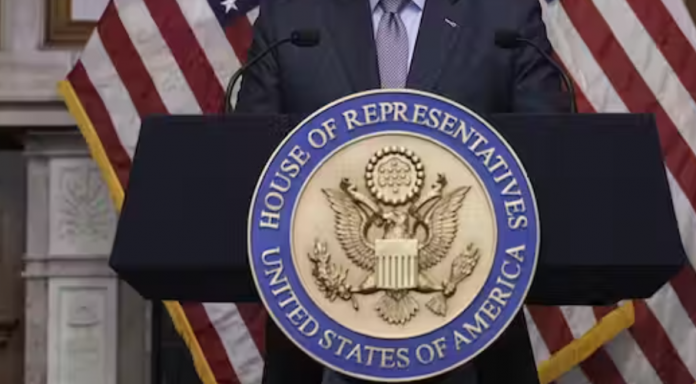Representative Kevin McCarthy’s time as Speaker of the House was marked by considerable instability right from the start. It required an astonishing 15 rounds of voting to obtain the required support for him to become the Speaker. In order to clinch victory, he had to engage in a compromise that came with significant consequences. He consented to a modification in the chamber’s rules, permitting just a single member to trigger a motion to remove the Speaker, essentially granting one individual the power to initiate his removal from the position.
Following the controversy caused by Speaker Kevin McCarthy’s concessions to President Joe Biden during recent discussions to pass a continuing resolution for federal government funding, Representative Matt Gaetz from Florida (R-FL) promptly utilized that opportunity.
Gaetz had previously expressed dissatisfaction with McCarthy’s reluctance to conduct a vote on term limits, grant adequate access to surveillance recordings from the 2021 Capitol Hill riot, and effectively lead the effort to issue subpoenas related to Hunter Biden.
On the 3rd of October, eight Republicans joined forces with Democrats, resulting in the removal of McCarthy by a vote of 216 to 210. This triggered a tumultuous 22-day period of crisis. The Republican House Caucus put forth three candidates to replace McCarthy, but their efforts were ultimately unsuccessful.
The leader of the GOP Conference, Elise Stefanik from New York (R-NY), put forward the name of another Louisiana legislator, Representative Mike Johnson, who effortlessly secured the position of Speaker of the House in the initial ballot on October 25.
Johnson is a relatively recent addition to Congress, having taken office in January 2017. His track record reflects his meticulous attention to detail and commitment to certain positions. He played a key role in recent initiatives to challenge the outcome of the 2020 presidential election.
He is known for his vocal opposition to LGBTQ+ rights and legal abortion. Johnson cast his vote against providing funding to Ukraine and stands against making any budget concessions with Democrats, even in the face of the imminent necessity to pass a clean continuing resolution for federal government funding.
Johnson initiated the discussion by highlighting a significant change in President Joe Biden’s mental sharpness. He pointed out that a swift comparison between Biden’s recent speeches and his statements during his time on the Senate Judiciary Committee clearly demonstrates a contrast in the President’s cognitive abilities.
The incoming Speaker expressed his opposition to a funding bill that links assistance for Ukraine and Israel. He emphasized his backing for providing aid to Ukraine and cautioned about the potential rise of China if Vladimir Putin were to emerge victorious in that conflict. Johnson didn’t dismiss the possibility of requiring the presence of U.S. troops in Israel but expressed his hope that the circumstances wouldn’t necessitate American intervention at that scale.
The interview touched upon various other subjects, such as same-sex marriage and the looming threat posed by China. He also mentioned the likelihood of the House uncovering evidence of actions by President Biden that could be considered as grounds for impeachment.








